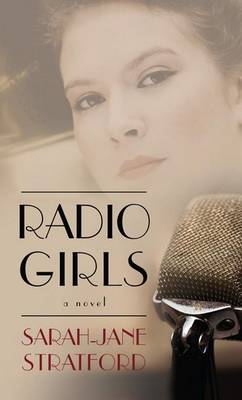
Heather
Written on Oct 4, 2016
Soon, she is seduced by the work—gaining confidence as she arranges broadcasts by the most famous writers, scientists, and politicians in Britain. She is also caught up in a growing conflict between her two bosses, John Reith, the formidable Director-General of the BBC, and Hilda Matheson, the extraordinary director of the hugely popular Talks programming, who each have very different visions of what radio should be. Under Hilda’s tutelage, Maisie discovers her talent, passion, and ambition. But when she unearths a shocking conspiracy, she and Hilda join forces to make their voices heard both on and off the air…and then face the dangerous consequences of telling the truth for a living."
I love historical fiction and especially British historical fiction. I was thrilled to receive this book from my OTSP Secret Sister and had to read it immediately.
BBC radio was only allowed to broadcast during set hours and was not allowed to cover news. One of their most popular departments was Talks, headed by Hilda Matheson. It was unusual for a woman to be allowed to head a department. The head of the BBC, John Reith, was a very conservative man who asked all (male) applicants for executive positions two questions - Are you a Christian? and Do you have any character flaws?
He thought that Miss Matheson was too liberal in topics she wanted to cover. She also kept bringing in homosexuals to present topics. He did not approve but did seem strangely up to date on who had rumors circulating around about their sexuality. Their conflict was real and this novel examines their issues through the voice of Maisie, a secretary that they share. Reith warns her about being too ambitious and being exposed to the wrong kinds of people while working in the Talks department. Matheson encourages her to speak up and promote ideas for new shows. Eventually Maisie is enlisted by Matheson to spy on some new backers of the BBC who have ties to an increasingly unstable Germany.
Hilda Matheson was a fascinating woman who I'd never heard of before. She was a political secretary for Lady Astor, the first female Member of Parliament. Then she went to the BBC and after that she worked on the Africa Survey. She also became a radio critic and wrote a textbook on broadcasting. She was a lesbian who had relationships with several high society women in England. A book on her alone would have been fascinating.
There is spying, burgeoning feminism, the evolution of new technology, and arguments about censorship. What more could you want from one book?This review was originally posted on Based On A True Story
